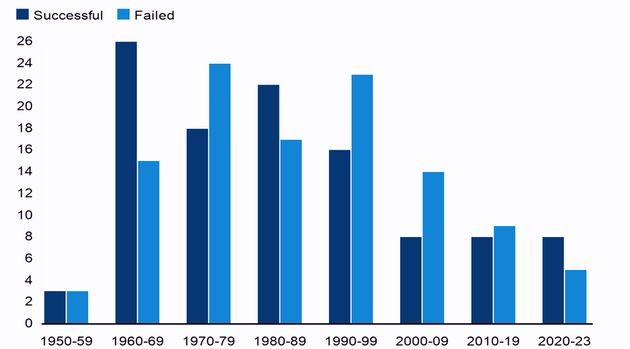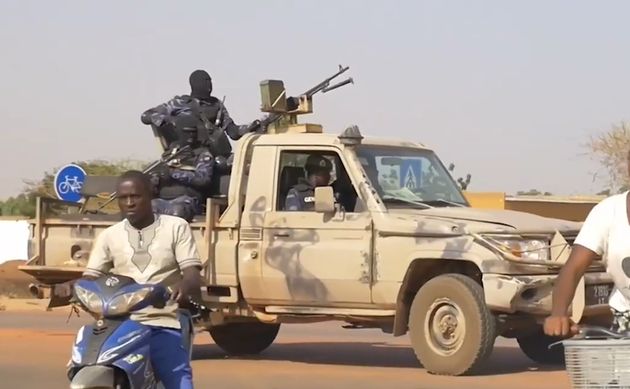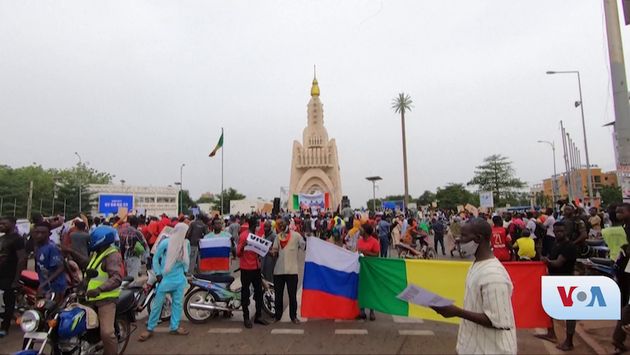Christians in Western Africa analyse the situation after nine military coups experienced in the region in only three years.
![Photo: [link]Random Institute[/link], Unsplash CC0.](https://cms.evangelicalfocus.com/upload/imagenes/6569ebc760b4a_coupaf.jpg) Photo: [link]Random Institute[/link], Unsplash CC0.
Photo: [link]Random Institute[/link], Unsplash CC0.
African politics has taken a new turn after nine coup d'états in the past three years, mostly in the continent's Francophone western region, and five other failed attempts.
First it was Mali in August 2020, followed by Chad, Guinea Conakry and Sudan in 2021, plus a second coup in Mali in September of the same year.
In 2022 Burkina Faso went through two coups. The first, in January, led to the deposition of president Roch Kaboré, while the second, in September, was carried out by lower-ranking military officers against the board formed after the first uprising.
In 2023, first Niger and then Gabon saw the military remove their elected leaders through the use of force.
According to data published by the universities of Central Florida and Kentucky, there have been more coups d'état in Africa between 2020 and 2023 than in the decades of 2000-2009 and 2010-2019.
The 'Coup d'État Project' database, created by the University of Illinois, shows the military uprisings against their own governments from 1945 to 2022 on an interactive map. In Burkina Faso, for example, 15 coups are presented (11 successful and four unsuccessful). In Sudan, 30 uprisings (21 of them failed).
Two years ago, the Secretary General of the United Nations, António Guterres, said: “Military coups are back. The lack of unity among the international community does not help”.

Martin Kapenda, regional director for Africa of the Peace and Reconciliation Network of the World Evangelical Alliance (PRN-WEA) explains to Spanish news website Protestante Digital that “factors influencing coups in West Africa are dynamic and as such we can not easily ascribe a single explanation to their causes and timing”.
“When the military takes over, in most cases they give reasons to back their decisions. For example, in Mali, they cited poor governance and corruption as the reason for ousting the democratically elected government. In Guinea and Burkina it was the ongoing Islamist insurgency”.
Kapenda looks back to find explanations for the current scenario and points out that “many of these countries have been trapped into dangerous self perpetuating instabilities through jihadist movements, poor governance and decline in economic conditions”.
According to Kapenda, a key period for understanding current African politics is the end of the Cold War and the emergence of fragile independent democracies. After that, “most African countries took a neoliberal democratic path, which over the years has proven to be largely cosmetic and superficial”.
“While elections are held periodically, unfortunately the will of the voters does not always come to the fore, as elections rigged in favor of the sitting president and his team. Some sitting presidents are also guilty of tempering constitutional terms in order to stay longer in power. Therefore, the loss of confidence in democratic institutions is the main reason for coups”, underlines the PRN-WEA regional director.
During the Cold War in the second half of the 20th century, West Africa had the highest number of coups in Africa. Now, it is the same region that is experiencing these military movements again.
For Kapenda, “it looks like people are disappointed with the neoliberal democratic project” because “local communities have not benefited from the abundant natural resources which are usually exploited by foreign multinationals that make millions of dollars the sale of what they extract, and continue to live in poverty. This breeds distress and mistrust, conditions that foster coups”.
Another “fertile ground for coups in West Africa” is “the lack security: the citizens have been negatively affected by terrorist activities and they blame governments of being corrupt hence mismanaging resources meant to fight against the jihadists”.

Another church leader in Africa involved in a peace and reconciliation ministry, who prefers to keep his identity anonymous for security reasons, says that one factor to consider in explaining the wave of coups is that of “losses caused by religious exclusivism”.
“Different groups have operated for some time in the Sahel and further South with some impunity. None can really define their political claims or their national identity. They are diverse and fluid, moving between countries. In some countries they blame other groups (religious, regional, or tribal). In other countries the blame went to government, and in others to the West”, he tells Protestante Digital.
For this leader, other factors are “poverty and unemployment, which left many youth without any hope; the proliferation of weapons; the ‘Arab’ Spring hangover; the disintegration of Libya with the scattering of armed groups; and the ‘war Eastern against Western powers’, where small countries can only play one side against the other”.
A repeated image in several coups is the burning of French flags, while in Niger, for example, several demonstrators were photographed waving Russian flags.
Although the last coups have been successive and with many similarities, “it is hard to know if it is a chain reaction”, says this church leader.
“When there has been a coup in one country, and the regional force went in to restore order as it was condemned by the international community, it has dissuaded others”, he adds.
But “this time, the reaction or lack of it, or a weak reaction by the international community may be approval. It is hard to not notice the solidarity between the countries that have gone through the same phenomenon”.
Kapenda believes there is a "common thread" in the latest cases, although he also points out that "each country has historical factors responsible for the coups".
However, “what is known is that Mali, Guinea, Niger, and Burkina Faso are all former French colonies, and the recent coups are not the first there. They have experienced coups in the past and it has become ingrained in their national political cultures”.
These countries, Kapenda continues, “have very weak judicial and governance institutions, so that when there are disagreements the only legitimate arbiter is the military". That is why “people tend to have a positive view of the military and applaud them when they oust corrupt governments. Unfortunately, these military leaders are usually not better than governments”.

[photo_footer] A demonstration in support of the uprising military in Bamako, following the 2021 coup. Among the demonstrators, several of them wave Russian flags. / VOA News, Wikimedia Commons. [/photo_footer]
The fact that in some of these countries the state does not guarantee the right to religious freedom, and some even appear on the persecution lists of organisations that monitor the situation of Christians worldwide, raises the question of whether this situation will change under military rule.
The Association of Protestant Churches and Missions Groups of Mali (AGEMPEM) has underlined the good interactions with the governments resulting from successive coups d'état. Even after the first military uprising in September 2020, they claimed they had been asked to mediate.
The secretary general of the organisation, Jerome Tienou, tells Protestante Digital that "the role of the military is to provide security for people and their property".
“We have never had any difficulties with religious practice by the state. In fact, the government often asks us about matters related to the life of the nation”.
According to the aforementioned church leader, “so far, we have not seen any sidelining of a particular religious group in countries where coups have happened. We keep praying that things will remain the same”.
Kapenda, on the contrary, sees the church as “a victim of military coups in West Africa" because "terrorist jihadist groups in the region perceive it as a Western institution".
The PRN-WEA regional director has “heard stories of Christians in some of the West African countries that have experienced coups, who have been expelled from their communities losing personal belongings and church buildings”.
One Christian church leader in Mali lamented that “the current happenings in our country after the coup has forced us a corner and we are no longer fighting for the survival of the church but fighting for personal survival”, he recalls.
[donate]

Las opiniones vertidas por nuestros colaboradores se realizan a nivel personal, pudiendo coincidir o no con la postura de la dirección de Protestante Digital.
Si quieres comentar o